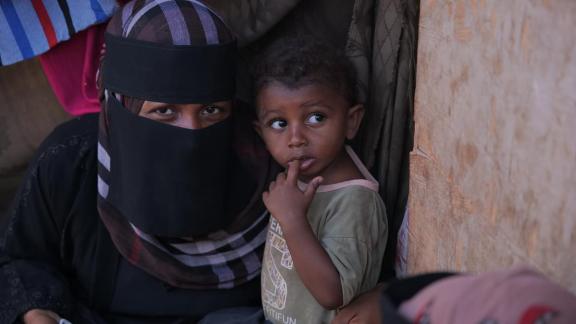Where is Yemen?
Yemen lies on the southeastern edge of the Arabian Peninsula, buffered by the Red Sea and the Gulf of Aden and bordered by Saudi Arabia and Oman. About 29 million people call Yemen home, and they are the poorest in the Middle East.
What is the Yemen civil war about? Does it stem from colonisation?
Yemen's current civil war began in 2015 as a result of clashes between Yemeni government forces and the Houthis, killing an estimated 377,000 people and displacing 4.5 million. Portions of the nation have a history of British and Ottoman colonial rule, and two civil wars – on top of the current one – have been waged since the early 1960s. They have been caused by a stew of local and foreign interests, from Washington, Saudi Arabia to Iran. These external actors have frequently provided military, financial, and political support to rival groups within Yemen, worsening the conflict and transforming it into a proxy battleground.
How has the war in Yemen affected women and girls?
The collapse of essential services, including healthcare and education, has had a devastating impact on women's well-being and prospects for the future. With hospitals bombed and schools turned into battlegrounds, women are left without access to even the most basic necessities, and forced to endure childbirth without proper medical care. The impact of this is felt disproportionately by women and girls, constituting 77% of Internally Displaced Persons (IDPs). Women and girls in Yemen already experience discriminatory societal attitudes towards economic engagement and movement.
What challenges are pregnant women facing in Yemen?
Many of those who are pregnant and lactating in the camps suffer from malnutrition, anaemia, limited access to healthcare, and a lack of knowledge about reproductive health and family planning. Pregnant women require proper nutrition, regular check-ups, prenatal monitoring devices, as well as various medications and vitamins for their health and the health of their foetus. However, there are no reproductive health units specifically dedicated to the camp. With the high costs of healthcare for pregnant and lactating women in hospitals and healthcare centres outside the camp, women in the camp are unable to take any preventive healthcare measures to protect themselves and their babies from potential risks.
What is IPPF doing about it?
Our Member Association in Yemen, the Yemeni Association for Reproductive Health (YARH), which was established in 2009, has set up a sexual and reproductive health unit inside the IDP camps in Sana’a and Aden, providing lifesaving SRH services, including 24/7 emergency obstetric services to IDPs, neonatal care, contraceptive advice and counselling, and awareness sessions. In Aden, YARH has established a good reputation in a densely populated neighbourhood with no other facilities providing obstetric services.
As the international community fails to pay attention to the devastation and forgotten crisis in Yemen, it is imperative that the voices of women be heard and their situation acknowledged. Concrete action must be taken to address the root causes, including ensuring access to essential services, and empowering women to fully participate in the nation’s reconstruction process. In the end, the true measure of a society’s humanity lies in how it treats its most vulnerable members. In Yemen, where war has impacted an entire generation, it is our collective responsibility to ensure that their rights are upheld. Anything less would be a betrayal of our shared humanity and responsibility.
when
region
Arab World
Subject
Conflict
Related Member Association
Yemeni Association for Reproductive Health

In the end, the true measure of a society’s humanity lies in how it treats its most vulnerable members. In Yemen, where war has impacted an entire generation, it is our collective responsibility to ensure that their rights are upheld. Anything less would be a betrayal of our shared humanity and responsibility.











